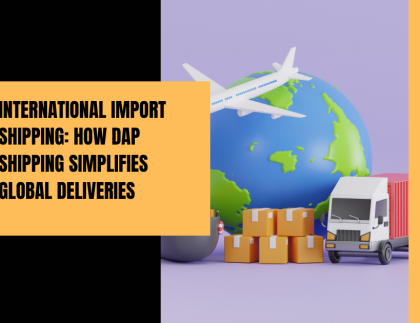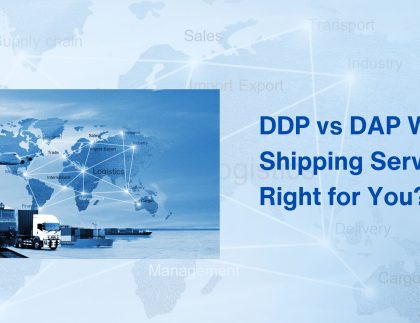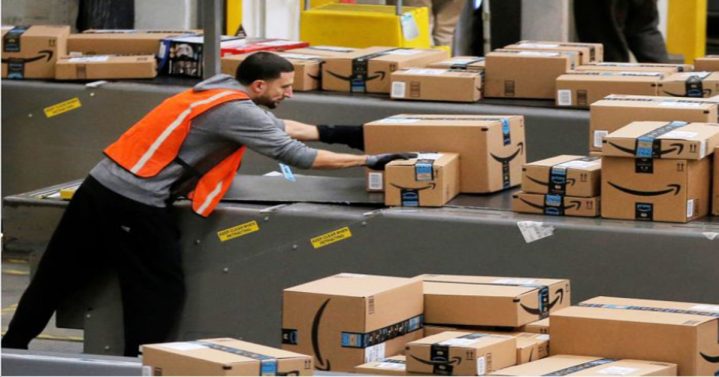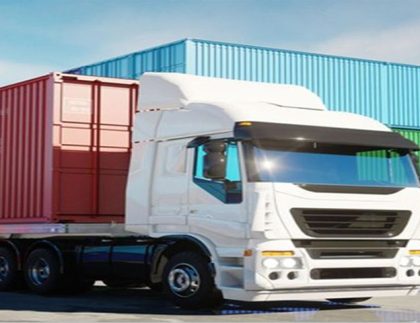
Efficient cargo handling is the backbone of global supply chains, impacting everything from delivery times to cost management. For businesses looking to optimize their container freight services, implementing best practices in freight management is essential. As experts in global supply chain logistics, DDU Express is committed to helping you achieve greater efficiency in cargo handling and freight services. Here, we outline the best practices to enhance your cargo handling processes.
1. Understand the Basics of Cargo Handling
Cargo handling encompasses the various processes involved in managing goods during transit, including loading, unloading, transferring, and storing cargo. Each step must be carefully managed to ensure the safety of the cargo, minimize delays, and reduce costs.
At DDU Express, our services extend from standard cargo handling to specialized procedures, such as handling hazardous materials and temperature-controlled goods. We leverage our expertise to navigate the complexities of container freight stations (CFS) and ensure efficient handling across all stages.
2. Optimize Your Use of Container Freight Stations (CFS)
Container Freight Stations play a vital role in cargo consolidation and de-consolidation, serving as a staging area between different transport legs. Optimizing CFS usage can significantly reduce costs and transit times. Here are some tips:
- Plan Ahead: Proper planning ensures that your goods are stored and moved efficiently. We offer flexible storage options, allowing for both short-term and long-term storage solutions tailored to your needs.
- Utilize Free Storage Periods: Take advantage of the free storage periods offered for import/export cargo. For instance, covered storage provides the first 5 to 10 days free, while open storage can offer up to 20 days free.
- Monitor and Manage Storage: Regular monitoring of refrigerated containers and other temperature-sensitive goods is essential to maintaining cargo quality and reducing spoilage risks.
3. Leverage Advanced Technology and Tools
Modern cargo handling relies heavily on technology. Implementing the right tools can help in tracking, monitoring, and managing cargo more effectively.
- Radio Frequency Identification (RFID) Tags: RFID technology is used for tracking and managing container movements within the port. By using RFID tags, you can streamline the process of container delivery and receipt, reducing manual errors and delays.
- Real-Time Monitoring: DDU Express provides real-time monitoring services, especially for refrigerated containers, ensuring temperature control and alerting clients to any potential issues that might arise.
4. Ensure Compliance with Safety and Environmental Standards
Safety is paramount in cargo handling. Non-compliance can lead to costly fines, delays, and even accidents. Ensure that all cargo handling practices adhere to international safety standards and environmental laws.
- Hazardous Materials Management: For hazardous materials, strict compliance with the International Maritime Dangerous Goods (IMDG) Code is crucial. We offer specialized handling for such cargo, including proper labeling, storage, and transport.
- Environmental Considerations: Consider the impact of your cargo on the environment. For instance, opt for methods that reduce carbon footprint, such as consolidating shipments to minimize trips or using energy-efficient transportation modes.
5. Optimize Freight Management Through Strategic Planning
Strategic planning is a key element of freight management. It involves making informed decisions about the routes, shipping modes, and logistics providers that will be used.
- Choose the Right Shipping Method: Depending on the type of cargo and urgency, choose the most appropriate shipping method. For example, direct delivery options can save time by bypassing port yards or freight stations.
- Monitor Cargo Throughout the Supply Chain: Continuously monitor the status and condition of your cargo. At DDU Express, we use advanced tracking systems to provide real-time updates, ensuring transparency and peace of mind for our clients.
6. Minimize Costs Through Efficient Resource Utilization
Cost control is critical in maintaining competitive pricing in the market. Efficient resource utilization helps in reducing unnecessary costs associated with delays, storage, and handling.
- Avoid Misdeclaration and Improper Documentation: Misdeclaration of cargo weights or improper documentation can lead to fines and delays. Ensure accurate and complete documentation to avoid additional charges.
- Utilize Economical Cargo Handling Options: Opt for bulk storage rates or special discounts for large volumes when available. For instance, DDU Express offers discounted rates for bulk shipments, which can help in significantly lowering costs.
Conclusion
Implementing these best practices for cargo handling and freight management can help streamline your operations, reduce costs, and enhance the efficiency of your supply chain. At DDU Express, we bring our expertise as global supply chain professionals to provide comprehensive freight services tailored to your business needs. Contact us today to learn more about how we can help optimize your cargo handling processes for maximum efficiency.
By integrating these best practices, your business can navigate the complexities of container freight services with greater confidence and efficiency, ensuring that your cargo reaches its destination safely, on time, and within budget.










